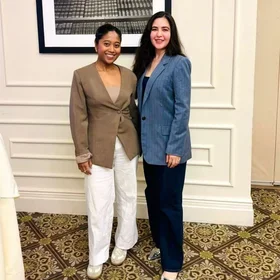For many of us, Negotiation and Conflict Resolution (NECR) has been the catalyst for a career transition and a way to find a sense of purpose. This process is not unlike a cosine function with several highs and lows. It certainly does feel great when things begin to take shape, as those highs become more frequent than the lows. However, it's a long journey, and the main thing that matters is resilience.
In retrospect, I did not really know what I wanted. I had a wide range of options in mind, but as I went through the program, immersing myself as much as I could in it, I ended up having a completely different view. I found the combination of reflection and systems thinking – the core of the NECR program – extremely powerful. I also appreciated the academic mentality of the program versus the more common business school mentalities of other programs.
The experience in the NECR program has been transformative, affecting my way of thinking in every aspect of my life. It planted the academic seed and boosted my confidence and motivation. The skills I gained were incredibly useful. From trying to talk your way out of a speeding ticket to dealing with friends and family to the more explicit professional applications, these skills are part of a dynamic process that requires lifelong reflection and learning. For me, the skills, concepts, and revelatory themes of NECR have helped me make positive personal and professional adjustments.
In particular, one of the things I have been focusing on is how organizations operate. Productive conflict is at the core of interdisciplinary/cross-functional collaboration across a wide array of fields from business to academia to policy. I am giving a talk about this at the upcoming Devopsdays Conference this August in Boston, at the Microsoft Nerd Center, as well as at the O'Reilly Velocity Conference in New York this September. Apart from these new developments, NECR has also provided me with valuable insights on issues that pertain to my past expertise in conflicts and international affairs.
The skills offered by the program are valuable professionally but, even more so, personally. The way NECR helps one reflect on one's own relationship with conflict keeps one from stagnating. Failing to incorporate the lessons of NECR means spending time to end up where you started.


